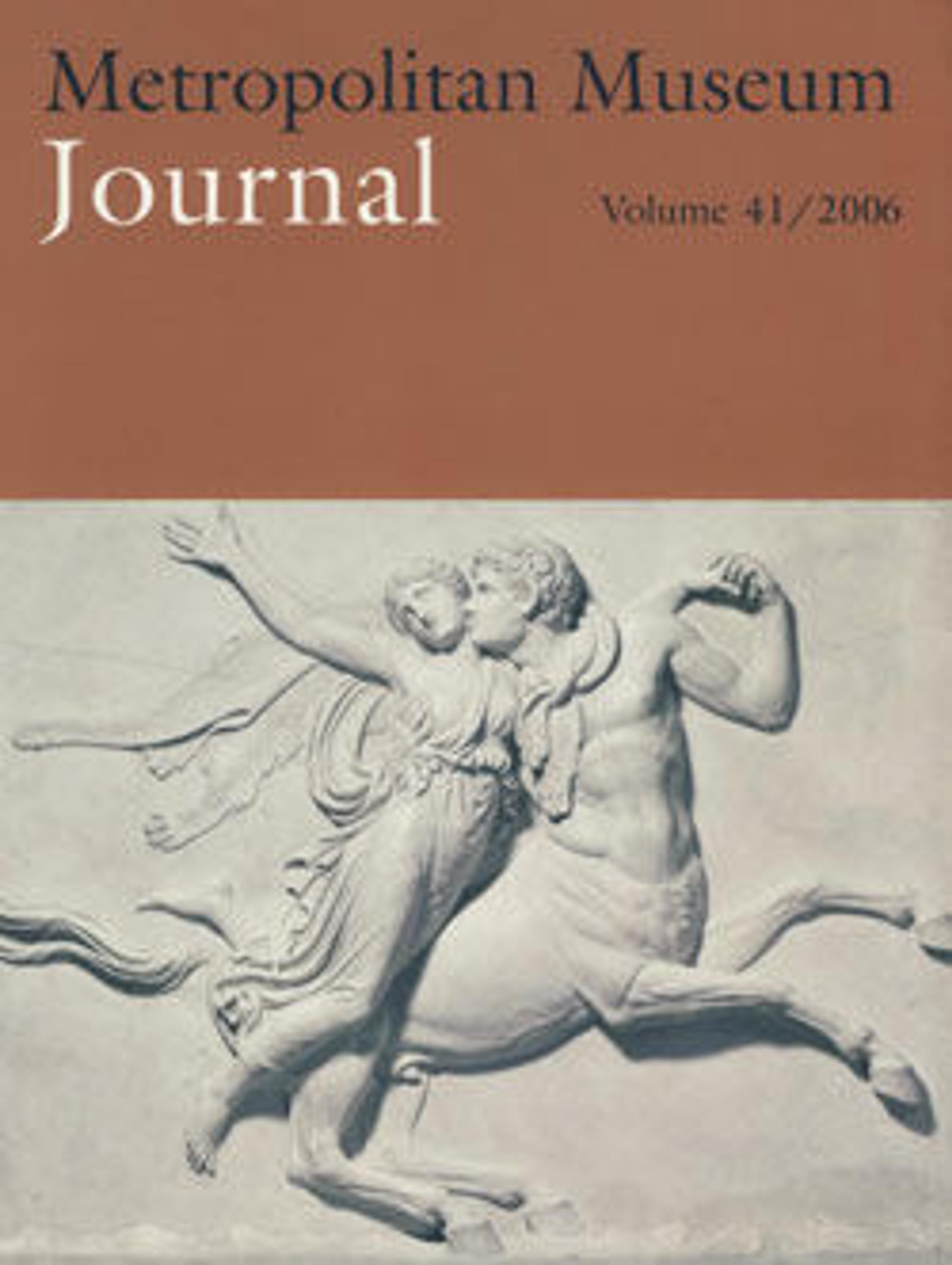Terracotta kylix: lip-cup (drinking cup)
Interior, archer on horseback and warrior dismounting
Exterior, obverse and reverse, profile heads above, inscription between animals below
During the third quarter of the sixth century B.C., the lip-cup and the band-cup were the two preferred types of drinking cup. The lip-cup's exterior is clay-colored, and the usual decoration consists of a figural motif at the top and an inscription and palmettes below. Many variations occur, however. The profile head is a favorite motif, particularly associated with a painter called Sakonides but popular also with his contemporaries.
Exterior, obverse and reverse, profile heads above, inscription between animals below
During the third quarter of the sixth century B.C., the lip-cup and the band-cup were the two preferred types of drinking cup. The lip-cup's exterior is clay-colored, and the usual decoration consists of a figural motif at the top and an inscription and palmettes below. Many variations occur, however. The profile head is a favorite motif, particularly associated with a painter called Sakonides but popular also with his contemporaries.
Artwork Details
- Title: Terracotta kylix: lip-cup (drinking cup)
- Artist: Signed by Epitimos as potter
- Artist: Related to the style of Lydos
- Period: Archaic
- Date: ca. 550–540 BCE
- Culture: Greek, Attic
- Medium: Terracotta; black-figure
- Dimensions: H. 7 7/8 in. (20 cm)
diameter 12 1/16 in. (30.6 cm) - Classification: Vases
- Credit Line: Fletcher Fund, 1925
- Object Number: 25.78.4
- Curatorial Department: Greek and Roman Art
More Artwork
Research Resources
The Met provides unparalleled resources for research and welcomes an international community of students and scholars. The Met's Open Access API is where creators and researchers can connect to the The Met collection. Open Access data and public domain images are available for unrestricted commercial and noncommercial use without permission or fee.
To request images under copyright and other restrictions, please use this Image Request form.
Feedback
We continue to research and examine historical and cultural context for objects in The Met collection. If you have comments or questions about this object record, please contact us using the form below. The Museum looks forward to receiving your comments.
